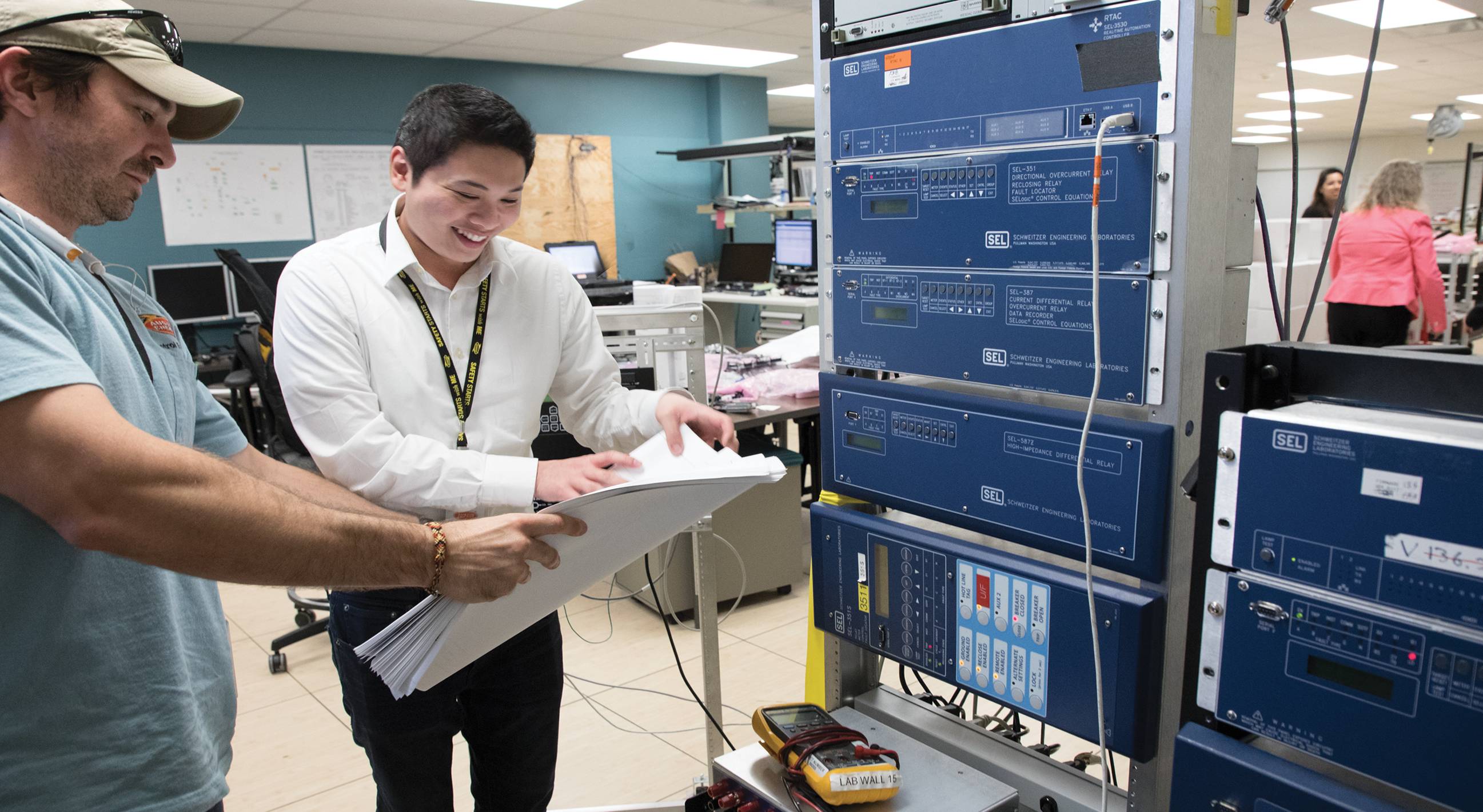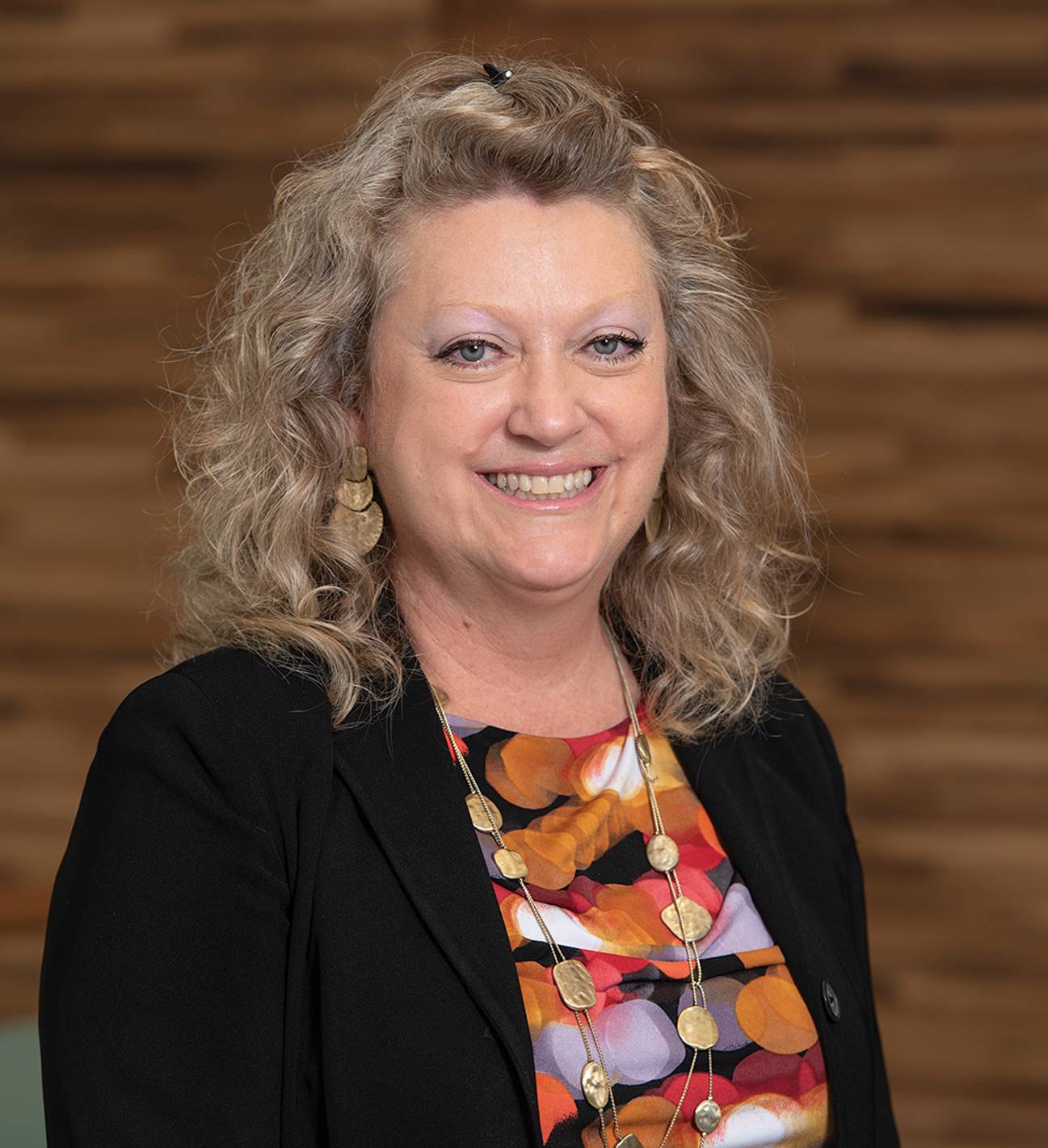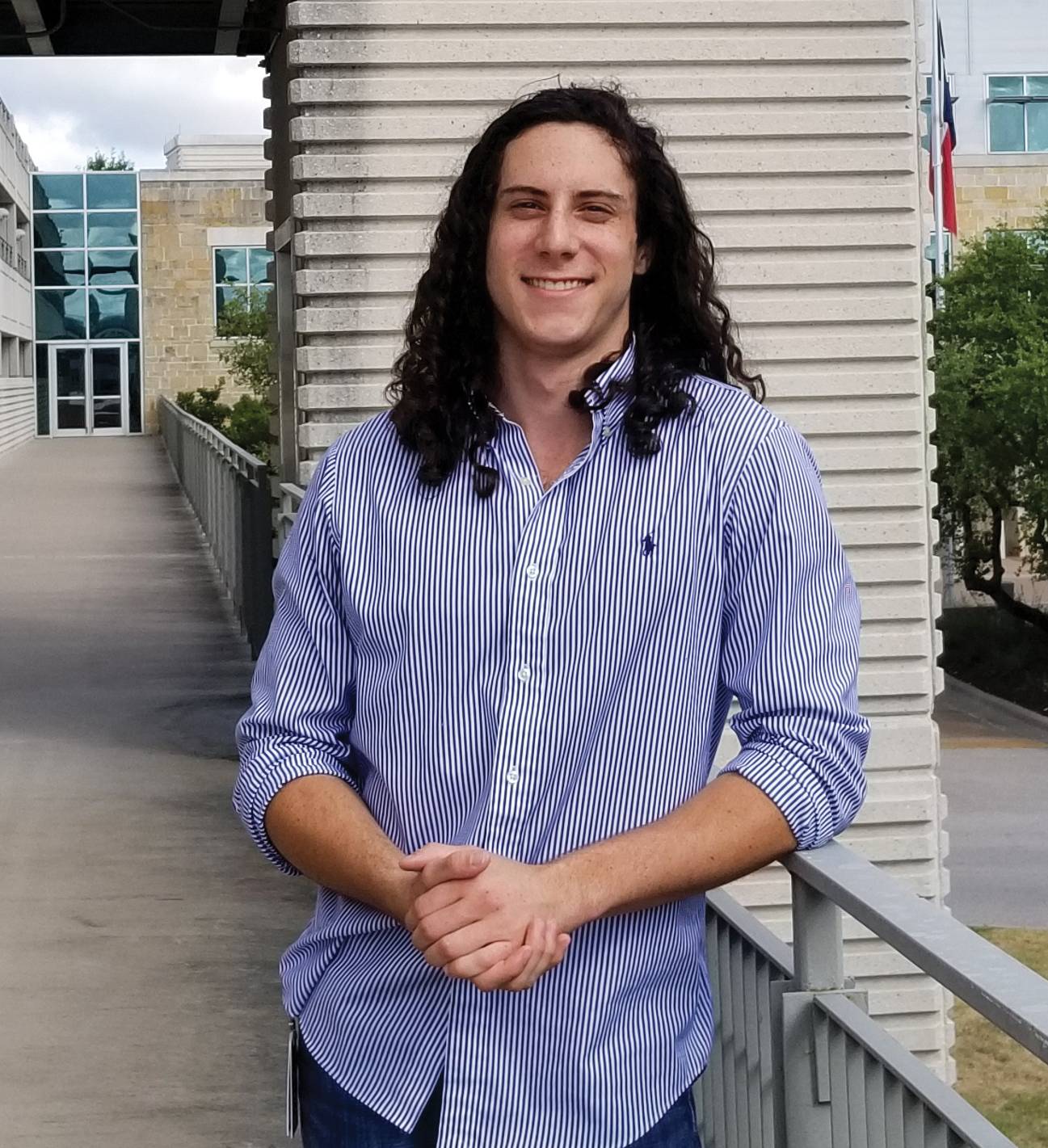
Cooperative Education
by Anastasia Cisneros-Lunsford
Engineering students get experience along with a paycheck
Albert Einstein once said: “Learning is experience. Everything else is just information.”
Indeed, at the turn of the last century, an engineering professor adapted that concept successfully. Cooperative education began in 1906 at the University of Cincinnati where Herman Schneider, dean of engineering, believed that to become an engineer a student had to practice being an engineer. Texas State University is now following suit with a cooperative education program for engineering students that incorporates on-the-job work experience into the academic curriculum.
According to the Cooperative Education and Internship Association, about 1,000 colleges and universities in 43 countries currently conduct cooperative education programs in partnership with 76,000 employers and 310,000 students.
Dr. Michelle Londa, associate professor of practice in the Ingram School of Engineering, was appointed the cooperative education coordinator in September 2017. “I have been focusing on getting the processes in place for the co-op program. Now it is time for me to switch focus and get out onto the street, visit companies, and get programs formalized with employers,” she says.
Diverse pool of students
Co-op is a cost-effective method for employers to meet their hiring needs. Texas State offers a diverse pool of students who bring innovative perspectives and a pipeline for future full-time hires and industry leaders. Traditional co-op programs involve alternating semesters of school and industrial experience. New back-to-back models, with industrial experience in summer/fall or fall/spring, allow students to “co-op” for a longer period of time. This gives them an opportunity to work on longer-term projects and make significant contributions to the workplace.
Texas State students are earning money and gaining valuable experience at companies such as Austin Energy, Tokyo Electron America, AMD Semiconductor, NASA, Samsung, Caterpillar, Intel, NXP, Continental Automotive, and Lockheed Martin.

“I’ve had numerous companies tell me, ‘Michelle, your students are phenomenal. They have great attitudes. They are hungry to learn. There is no typical student in the co-op program. We are so highly diverse.”
—Dr. Michelle Londa
Texas State is providing skilled employees who bring a fresh perspective to the workplace. Senior electrical engineering major Anthony Le was involved in the inner workings of the electrical grids that provide power to more than 1 million residents in Greater Austin. In the control engineering division of Austin Energy, Le quickly became familiar with SCADA, supervisory control and data acquisition, and ADMS, advanced distribution management system, the two different systems that monitor power transmissions and distribution.
Le’s other projects included updating the voltage var optimization display. He also worked closely with power engineers to update satellite images of Austin Energy’s areas of operations. “The power engineers can relate those data with other overlays such as transmission lines, distribution lines, and transformers,” he says.
Le’s mentor, Hilda Martinez, power system engineer at Austin Energy, says Le offers a fresh look. “Sometimes we get caught up in the everyday, day-to-day stuff and we take things for granted,” she says. “He asks questions and brings up new ideas. He has a fresh perspective. He’s open-minded, willing to learn anything.”

Working with a team
For graduating senior and industrial engineering major Kathryn Turman, one of the biggest benefits is growing as a professional. Involved in logistics management at Tokyo Electron America in Austin where she runs reports and performs data analytics, Turman says she enjoys working with mentors who want to see her succeed.
“This opportunity required me to conduct myself professionally day in and day out,” she says. “I had to continually follow up with my mentors via email, phone calls, and face-to-face contact, present in multiple review meetings, and perform constant revisions and additions to obtain a product that agreed with my mentors’ standards.”
Electrical engineering major Zachary Schneiderman says exposure to industry before graduation is essential to experience. “You have to learn how to effectively work with a team,” he says. “Not a single day goes by at AMD where I don’t collaborate with a colleague from another team and even from another country.”
Stefanie Hotchkiss joined Safran Electrical and Power in Florida this past summer. Working in manufacturing engineering has helped her put the lessons she’s learned in the classroom to good use in real-world applications. She found that solving problems alongside other skilled engineers was a valuable experience. “A lot of the problems that are brought to their attention are not something that they just inherently know the answer to but instead they use limited prior knowledge and a lot of resourcefulness.”
Cooperative education typically involves more training, higher salaries, and higher levels of responsibility than internships. “Co-op is a win-win-win between the student, the company, and the university, whereas internships are typically limited to a student/company relationship,” Londa says.
Companies also have an opportunity to sponsor capstone senior engineering projects, which are a degree requirement. Students would engage in industry-focused, mutually beneficial, and innovative research projects, Londa says. Co-op positions with capstone senior engineering design partners such as Intel, Caterpillar, NXP, Younicos, and Ingram Readymix are in development as well as positions with local technological leaders such as Dell, Samsung, Apple, and Toyota.
The capstone senior project ties in well with the co-op program, says Cody Guidry, business development manager at Younicos, a German-American technology company that develops and sells energy storage systems and control software. “In the past, we have utilized the student’s knowledge of the company from their co-op or internship at Younicos to lead the capstone projects since they have working knowledge of our people, processes, challenges, and resources,” Guidry says. “The two programs complement each other very well and give a jump-start to the capstone projects by leveraging the investment the company and student have made in each other in the co-op program.”
As industry partners with Texas State, Guidry says the company looks forward to continuing to build the next generation of engineers together.✪